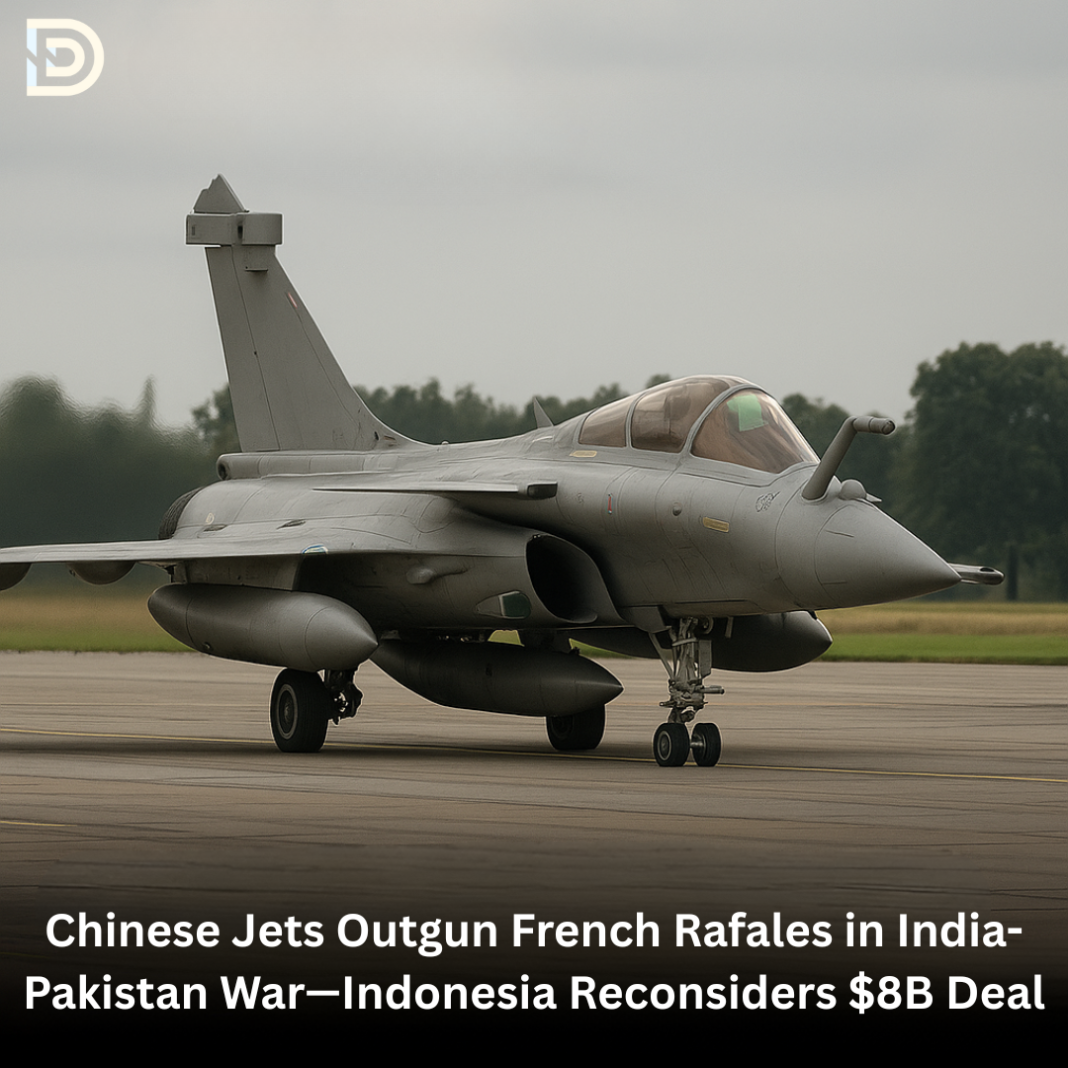Indonesia, a large country in Southeast Asia, recently made a huge plan to buy 42 French-made fighter jets called Dassault Rafales.
Indonesia’s Big Deal with France Put on Hold
The total cost of this deal was expected to be around $8.1 billion. These jets were described as “premium” aircraft, meaning they were among the most expensive and advanced warplanes available for sale from Western countries.
However, recent events have made Indonesia take a step back and re-examine this decision. According to reports, the Indonesian government is currently reviewing this significant Rafale acquisition. That means they are not moving forward with the purchase right away and are looking closely at whether it’s really the best choice for their military.
The main reason for this sudden pause has to do with how the same French-made Rafale jets performed in a recent war between India and Pakistan. Indonesia noticed that the expensive Rafale fighters did not live up to expectations during that short but intense four-day conflict.
What Happened in the India-Pakistan War?
In the war between India and Pakistan, both countries used advanced fighter planes and missile systems. India used the French-made Rafale jets and a missile called the Meteor, also made in France. On the other side, Pakistan used warplanes and missiles made by China, including the J-10C and JF-17 fighters and the PL-15 air-to-air missile.
Eyes on the Wreckage: China’s Mach 5 Missile PL-15E Becomes Intelligence Jackpot for West and Allies
Even though the Rafale and Meteor systems are among the most expensive Western-made weapons, the reports from this war suggest that the Chinese systems actually performed better during the fighting. This came as a surprise to many because Western weapons are usually seen as more powerful and effective.
The performance of these systems became a big topic on social media and news outlets, especially inside India. Analysts pointed out that the Chinese missiles had longer ranges and better targeting systems, and they cost much less. As a result, India had to quickly change its plans during the war, and outside countries, including the United States, had to step in to help stop the fighting.
Because the French Rafales and Meteor missiles did not work as well as expected, this raised questions about whether these expensive systems are worth the high price. This situation directly affected how other countries, like Indonesia, view their own military purchases.
Growing Concerns Over Western Weapons
For many years, Western countries have sold their weapons to other nations by promising top-notch performance and long-term support. Countries that buy these systems often have to sign long-term deals to keep the weapons working through maintenance and upgrades. This also makes those countries more likely to stay close to the West in global politics.
PL-15 Missile Combat Confirmed China Unleashes Powerful Weapon in Real Battle
But if those expensive systems don’t perform well in real battles, countries start to wonder if they are really getting what they paid for. Indonesia’s current hesitation about the Rafale purchase shows that developing countries are now paying closer attention to performance and price. They are asking tough questions before making huge investments in military hardware.
Even though France and other Western countries advertise their weapons as the best, the recent war showed that Chinese-made systems, which cost less, could be just as good—or even better. The Chinese warplanes and missiles used by Pakistan in the war were more than able to hold their ground against the high-cost Western machines.
Inside India, officials are also quietly concerned about how the French weapons performed. Even though public comments have tried to show confidence, behind the scenes there is worry. And that worry is spreading to other countries, like Indonesia, who had planned to buy the same equipment.
Indonesia is currently reevaluating its $8.1 billion Rafale acquisition in light of developments. They want to make sure they are not spending a lot of money on systems that might not give them the advantage they need in a real conflict.
For now, no final decision has been made, but the pause in the deal has made headlines around the world. Other countries watching closely might also begin to rethink their own deals for Western weapons.

